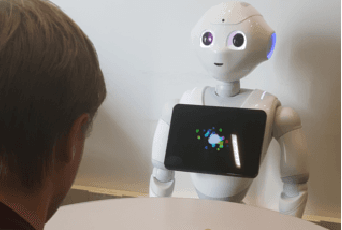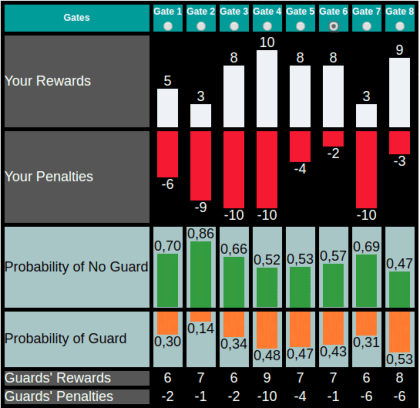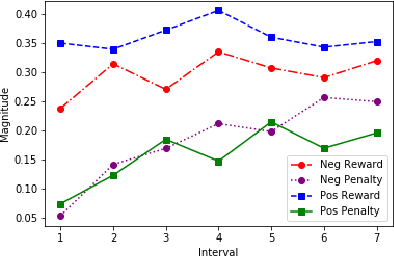A Robot's Expressive Language Affects Human Strategy and Perceptions in a Competitive Game
Paper and Code
Oct 24, 2019



As robots are increasingly endowed with social and communicative capabilities, they will interact with humans in more settings, both collaborative and competitive. We explore human-robot relationships in the context of a competitive Stackelberg Security Game. We vary humanoid robot expressive language (in the form of "encouraging" or "discouraging" verbal commentary) and measure the impact on participants' rationality, strategy prioritization, mood, and perceptions of the robot. We learn that a robot opponent that makes discouraging comments causes a human to play a game less rationally and to perceive the robot more negatively. We also contribute a simple open source Natural Language Processing framework for generating expressive sentences, which was used to generate the speech of our autonomous social robot.
 Add to Chrome
Add to Chrome Add to Firefox
Add to Firefox Add to Edge
Add to Edge